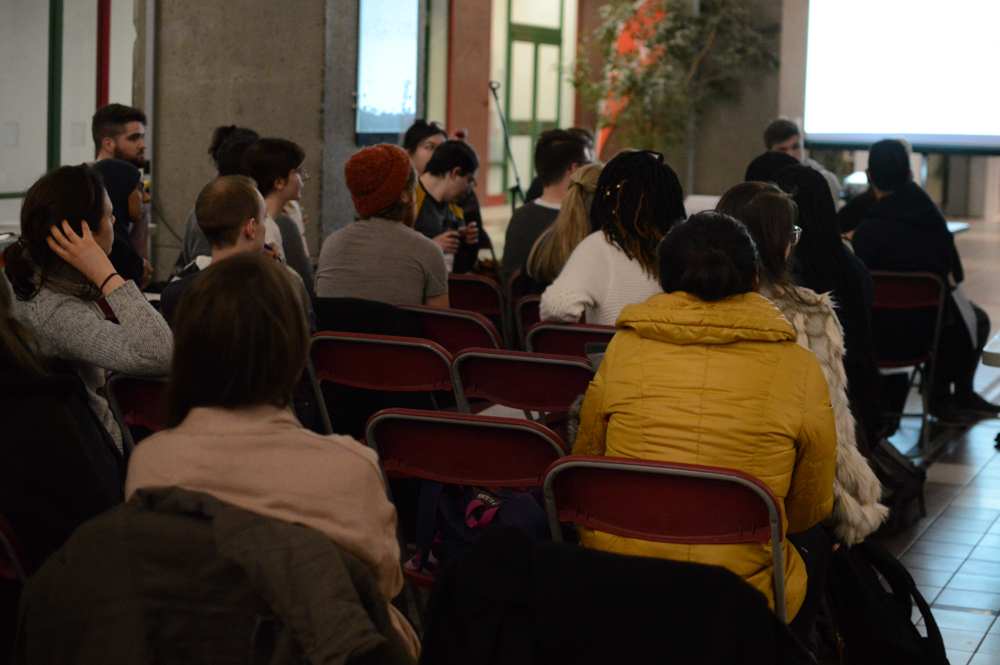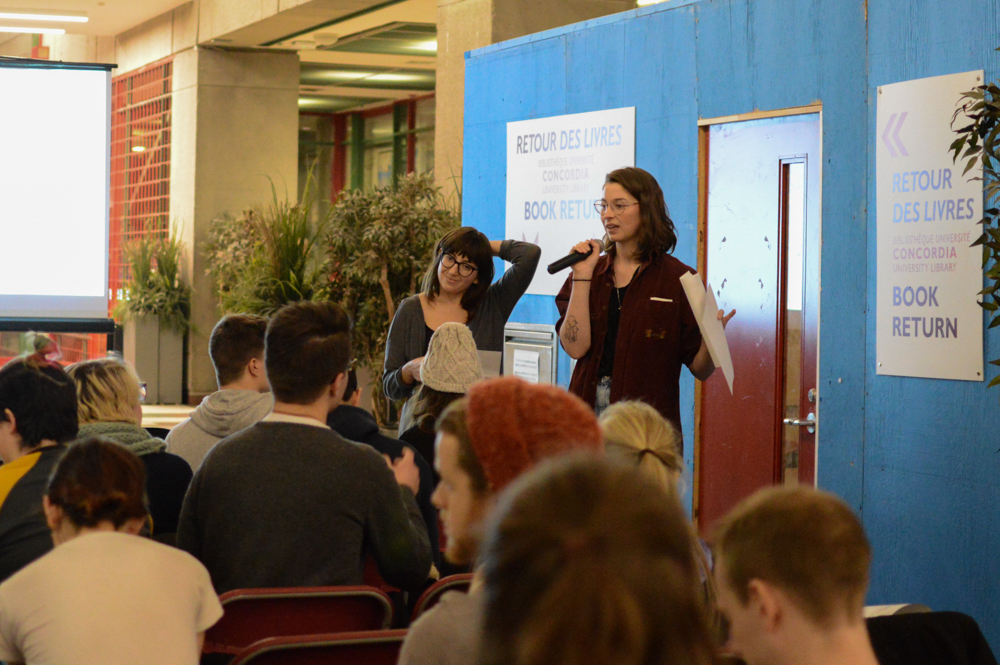Article written by Matthew Coyte and Megan Hunt
Mandatory consent training for university staff and students dominates conversation
Concordia students and department association representatives voiced their thoughts on potential sexual misconduct policy changes at a student congress hosted by the Concordia Student Union (CSU) on Feb. 28. At the end of the night, attendees voted on which demands would be included in a proposal the CSU will present to the university’s administration.
Following the congress, Leyla Sutherland, the CSU student life coordinator, said that despite the discussion not taking place in an official student union setting, the approved proposals will have a real impact and will be presented to the administration “very soon.”
“When the details are plugged into these proposals, they will be very effective ways of addressing and hopefully combating campus sexual violence,” Sutherland said. “I didn’t know what was going to come from [the congress]. I’m happy to have so many proposals to dig my teeth into.”
The congress took place in the downtown Webster Library lobby. The chairs that had been set up were quickly filled, and many attendees had to stand. Audience members candidly discussed their concerns about sexual misconduct at Concordia, as well as the administration’s response to the allegations plaguing the creative writing program.
A recurring concern was the lack of mandatory training on issues such as consent, power dynamics, sensitivity and disclosure. Although Concordia’s Sexual Assault Resource Centre (SARC) offers consent workshops, students and staff are not required to attend. SARC did not have a representative at the congress.
Following a lengthy discussion, which saw the proposal go through multiple iterations, the congress attendees voted on a demand for the university to fully fund mandatory consent training for all students, staff and faculty within a reasonable time frame. The demand received unanimous approval from attendees, meaning it will be fully endorsed by the CSU and included in their proposal to the administration.
The congress attendees also voted to approve a demand for the university to accept all the policy recommendations made by Our Turn, an organization that works with student associations across Canada to prevent sexual violence. These recommendations include developing and adopting peer-to-peer sexual violence prevention and training. Another proposal included lifting the current rule that all applicants to the university’s Task Force on Sexual Misconduct and Sexual Violence fulfill the vague requirement of “good academic standing.”

One of the many student associations present at the congress was the Concordia Association for Students in English (CASE).
“I think it was important for CASE to participate because, obviously, a lot of the attention has been surrounding cases that are specific to the English department, even though it’s happening in various places at Concordia,” said CASE president Debby Gemme. “This particular executive team is committed to helping fix these issues […] and I think this went really, really well.”
A Concordia student employed by the Montreal Sexual Assault Centre (MSAC) said they wanted to participate in the congress after receiving a spike in calls to the centre from Concordia students and others following the #MeToo movement.
“It has come to our attention that there’s a problem with the Concordia administration and how it addresses complaints,” said the student, who wished to remain anonymous. “I’m hoping that numbers have power, and it’s going to put enough pressure on the administration to give us more leeway or liberty in defining these new policies that work better to address students’ rights.”
The congress was attended by numerous student politicians, including councillors, Senate and executives members. Jonathan Roy, the president of the Arts and Science Federation Associations (ASFA), also attended the meeting. He said he is happy to be able to present these proposals to ASFA members, as well as to the Senate of which he is also a member.
“These are very acceptable, realistic requests. We want to feel safe in our own school; that’s not a wild thing to ask for,” Roy said. “We need to take action and hold the administration accountable.”
Despite the congress being open to faculty, only one professor showed up to voice her opinion. Kate Bligh is a part-time faculty member in the School of Irish Studies, as well as the theatre and English departments. She shared input that helped the congress shape their proposal, including insight that the university could not legally force part-time staff to undergo this training, as it would violate their contracts. All training at the part-time level would have to be voluntary. She also suggested the congress add these proposals under the health and safety regulations already in place, which the congress did.
Bligh said that, in her 20 years of teaching, she has never been called to attend any training like the kind the CSU is hoping to implement.
“The same way that we hold discrimination and violence to this standard, we have to do the same with sexual assault and violence,” Bligh said. “We need to decide what sort of culture our school should have.”
Photos by Mackenzie Lad




